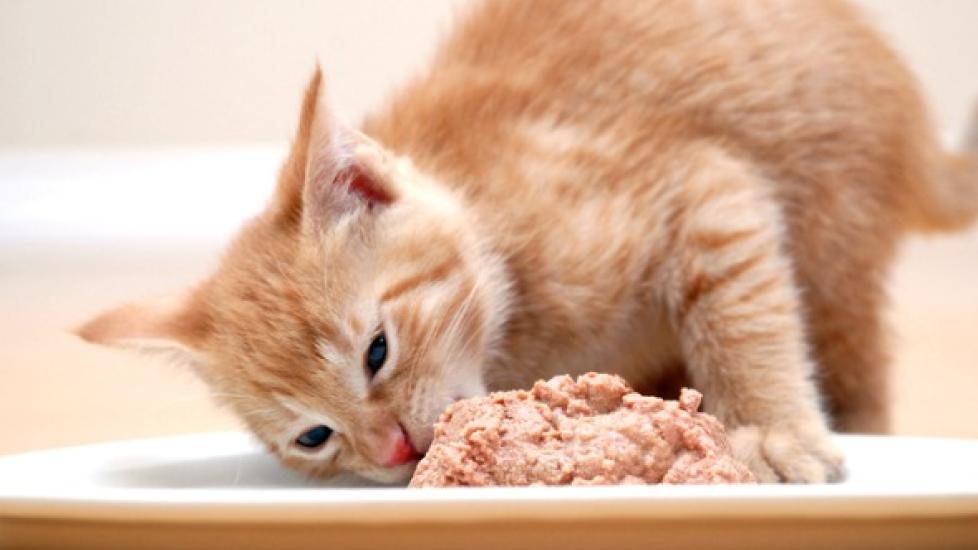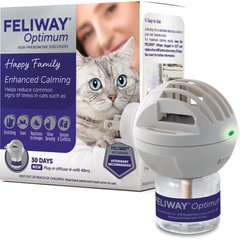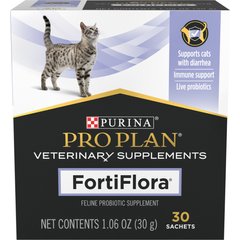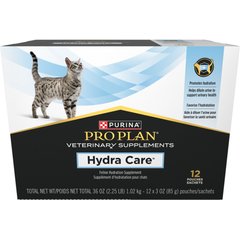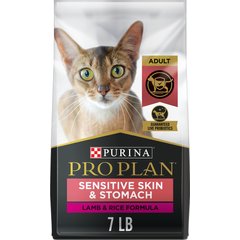Why Is My Cat Always Hungry?
Cats are typically grazers that eat small amounts throughout their waking hours during the day. Some cats never seem to be satisfied, no matter how much food you give them or how often they are fed. This can happen for many reasons, from simple boredom to concerning medical conditions.
8 Reasons for Increased Appetite in Cats
Here are some reasons why your cat may seem like they’re always hungry, as well as how each case is treated and when to go to the vet:
Boredom
Some cats will meow for food or eat simply because they are bored. To help relieve boredom, you can make their environment more enriching. Adding some interactive toys, including toys that allow your cat to hunt or search for their food, can help break the begging habit.
Low-Quality Diet
Poor-quality foods or not feeding your cat a diet that provides adequate calories to maintain their activity levels throughout the day can also lead to hunger pangs.
Feed a well-balanced, feline-formulated diet based on your cat’s lifestyle. For example, kittens and active cats require more calories, while sedentary, middle-aged cats require fewer calories. Discuss a diet plan with your veterinarian to determine the best diet and daily caloric intake to support a healthy life for your cat.
Aging and Changes in Metabolism
As cats age, their metabolism changes, and their bodies lose muscle mass. Your feline may be feeling hungrier to keep up with these changes. Your veterinarian can help determine the amount of fats, proteins, amino acids, and carbohydrates your cat should ingest daily to help lessen the cries for more food.
Medication Side Effects
Certain medications, such as corticosteroids like prednisolone and appetite stimulants like mirtazapine or capromorelin cause an increase in hunger. Your veterinarian will discuss these possible side effects when prescribing new medications. Vets will sometimes prescribe these medications to increase the appetite in some cats with appetite issues.
Intestinal Parasites
Severe parasitic infections or certain types of parasites (specifically roundworms and tapeworms) can cause increased hunger in cats. The parasites steal a large amount of the calories that your cat is ingesting, causing weight loss and hunger even when they are fed frequent, high-caloric meals.
Your veterinarian can do fecal testing and give your cat appropriate deworming medications to help rid their body of these intestinal parasites.
Hyperthyroidism
Hyperthyroidism is caused by overproduction of thyroid hormone from a cat’s thyroid gland. A normal thyroid produces this hormone to maintain normal metabolism in the body. With hyperthyroidism, a cat’s metabolism increases due to excessive hormone levels.
Increased metabolism leads to weight loss, muscle wasting, and often a severely increased appetite. This condition also commonly causes increased thirst, urination, and vomiting. Vets diagnose hyperthyroidism via physical examination and blood testing.
This disease can be treated either with medication to slow thyroid hormone production (methimazole) or radioactive iodine (I-131) therapy if your veterinarian determines your cat is a good candidate. Surgical thyroidectomy is rarely performed, due to the issue of hypothyroidism and hypoparathyroidism once the gland is removed.
Diabetes Mellitus
This is a disease where a cat does not have enough insulin (type I diabetes) in their body or does not respond to the insulin that is circulating in their body (type II diabetes).
Both types of diabetes in cats prevent the body from breaking down glucose (the body’s sugar source) into usable energy, causing excessive amounts of sugar in the bloodstream. This leads to your cat feel hungry even with hyperglycemia (high blood glucose).
Along with increased hunger, you are likely to see other clinical signs such as weight loss, a dull hair coat, increased thirst, and urination, and in severe cases, vomiting, diarrhea, and listlessness. Your vet can give a diagnosis via blood glucose testing and urine testing.
Insulin therapy (Glargine, ProZinc) is necessary for cats with diabetes and is usually needed for a lifetime. Diet changes (Royal Canin Glycobalance, Purina DM, Hill’s m/d) can also be helpful to stabilize blood sugar and hunger levels.
Malabsorptive Diseases
Inflammatory bowel disease (IBD) or intestinal neoplasia can cause the small intestines to not properly absorb nutrients from the food your cat ingests. This leads to weight loss, muscle wasting, and often, increased appetite. These signs are frequently seen alongside vomiting, diarrhea, and pica (eating non-food items).
Rarely, cats can be diagnosed with exocrine pancreatic insufficiency (EPI), a condition where the pancreas does not produce the appropriate amount of enzymes to help break down food. This thwarts the body’s ability to absorb the food’s nutrients.
Bloodwork, urine testing, and abdominal imaging are often needed to diagnose small intestinal malabsorption diseases. Treatment depends on the diagnosis. Diet changes to easily digestible, often hypoallergenic/novel protein diets, probiotics, vitamin B12 (cobalamin), and sometimes oral steroids, chemotherapy, and/or the addition of digestive enzymes are usually recommended help with hunger issues.
Vet Recommended Health Support
- Feliway Optimum Enhanced Calming 30 Day Diffuser for Cats$29.99Chewy Price
- Purina Pro Plan Veterinary Diets FortiFlora Powder Digestive Supplement for Cats, 30 count$30.99Chewy Price
- Purina Pro Plan Veterinary Diets Hydra Care Liver Flavored Liquid Supplement for Cats, 3-oz pouch, case of 12$14.99Chewy Price
- Purina Pro Plan Adult Sensitive Skin & Stomach Lamb & Rice Formula Dry Cat Food, 7-lb bag$28.08Chewy Price
Should You Go to the Vet if Your Cat Is Always Hungry?
If you notice that you cat is persistently hungry (over 5-7 days), or you see these other signs, then it is very important to schedule a visit to the veterinarian:
- Vomiting
- Diarrhea
- Weight loss
- Frequent vocalizing
- Worms in the stool
- Increased thirst
- Increased urination
- Lethargy
- Episodes of not eating
- Suddenly eating non-food items
How Vets Find the Cause for Increased Appetite in Cats
Testing may include:
- Full bloodwork and urine testing to assess liver, kidney, thyroid, electrolyte, and red and white blood cell levels
- Fecal testing for intestinal parasites
- Abdominal imaging such as x-rays or ultrasound to look at the gastrointestinal system.
Sometimes, a specific blood test called a gastrointestinal panel is recommended, which helps further inspect for small intestinal malabsorptive diseases.
Featured Image: iStock.com/aleksandrovaphoto
